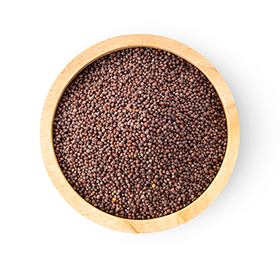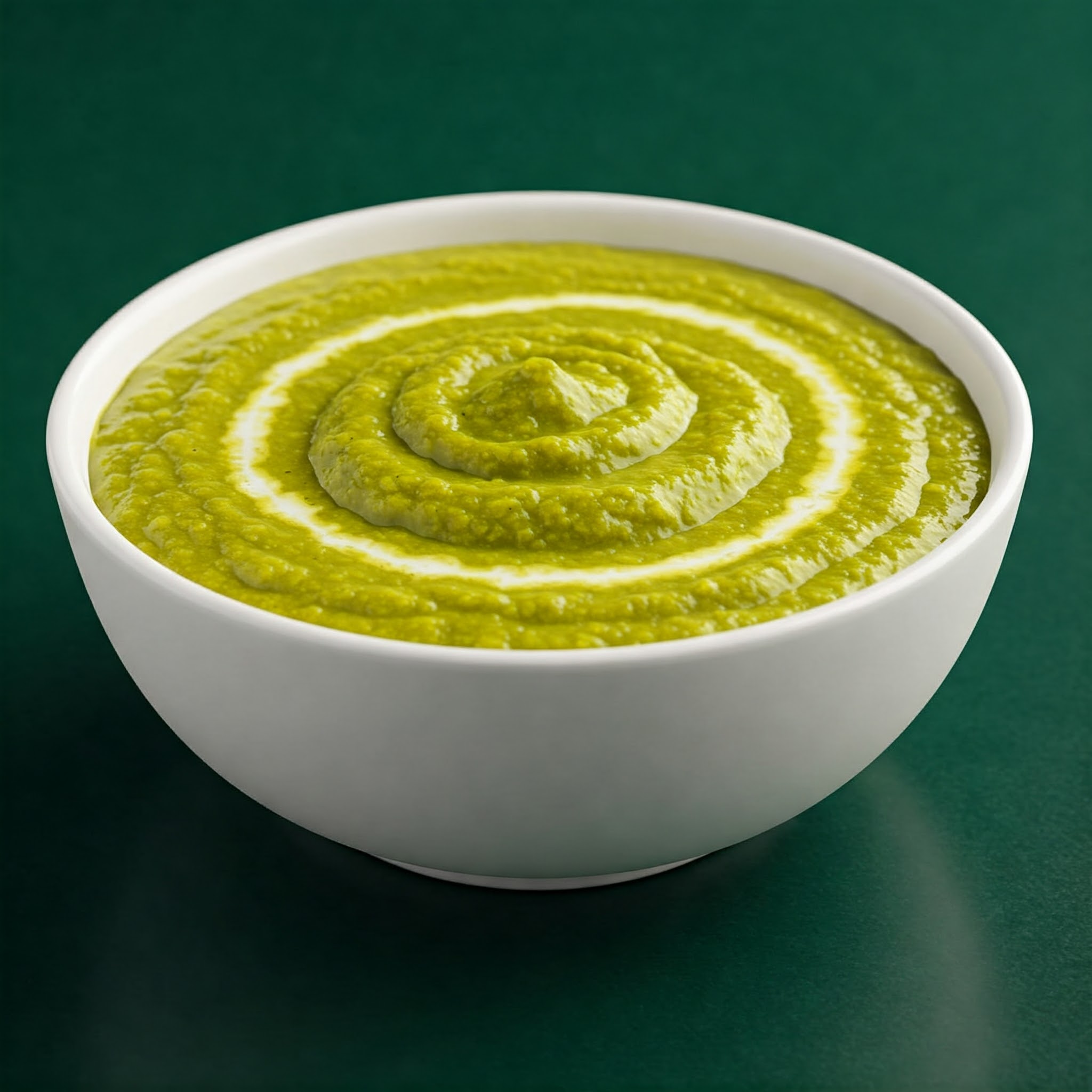Mustard Seed (सरसो के बीज)
Saraso ke beej, Rai

About Mustard Seed
Mustard Seeds / Rai. सरसो के बीज saraso ke beej
Mustard seeds are small round seeds, and there are about 40 different varieties of Mustard seeds available. For Culinary uses Black, brown and white seeds are used. Mustard seeds are digestive and good for people suffering from stomach discomfort (like gas or cramps) - specially brown mustard seeds are used with ghee to get relieve from stomach discomforts.
There are two types of mustard seed commonly used in India, black mustard seed (called rai) and yellow mustard seed (called sarson). ... Generally, the whole black mustard seeds (rai) are fried and used with dal, achar, and other indian vegetarian dishes and use yellow mustard with vegetable curry or fish.
Mustard Seeds are rich in various minerals like calcium, phosphorus, zinc and magnesium. Mustard Seeds are second most popular spice. Some of the health benefits/ Disease Prevention
- Cancer Treatment
- Migraine
- Respiration Congestion
- Nightshades
- Blood Pressure and Menopausal Relief
- Anti Fungal Properties
- Treats Cold, Back Pain and Fever
- Treating Diabetes.
- Strengthens Hair
- Slows ageing
- Natural Scrub
- Hydrates Skin
Though eating Mustard Seeds with food is safe, but if taken directly by mouth ( in large amount) can damage throat and other side effects including heart failure, diarrhoea, drowsiness, breathing difficulties, coma etc. Also it can cause skin damage if applied for a long time.
Avoid eating black mustard in pregnancy as this contains various chemical which can start menstrual period resulting miscarriage.
In Ayurveda, mustard seeds are valued for their warming properties, promoting digestion and circulation. They are believed to balance the doshas, particularly Kapha and Vata. Rich in nutrients, mustard seeds are used to stimulate appetite, enhance metabolism, and support respiratory health, making them an integral part of holistic wellness.
How to Store Mustard Seed
To store mustard seeds, keep them in an airtight container. Place the container in a cool, dry place away from sunlight. This helps keep the seeds fresh and flavorful for a long time. Avoid storing them in damp areas to prevent spoilage.
Shelf Life of Mustard Seed
Mustard seeds have a shelf life of about 2 to 3 years when stored in a cool, dry place, away from direct sunlight. Proper storage in airtight containers helps maintain their flavor and freshness.
How to Check Mustard Seed Before Buying
When buying mustard seeds from a local vendor, first inspect the seeds for freshness. Look for seeds that are uniform in color, typically yellow or black, and free from any discoloration or debris. The seeds should be firm and intact, not brittle or broken, which indicates they are fresh. Smell the seeds to ensure they have a strong, pungent aroma, a sign of quality.
It's advisable to buy in bulk if you use mustard seeds frequently, as this can save money and reduce packaging waste. However, ensure you have proper storage to maintain their freshness. Store the seeds in an airtight container in a cool, dark place to prevent spoilage. If you plan to use them within a few months, bulk purchasing is ideal; otherwise, consider smaller quantities to avoid waste.
Explore
Explore our services and take your business to the next level.
Recent Posts

Bajra Idli is the perfect addition to your balanced weekly menu. Packed with the...

Bajra Ladoo is a nutritious and delicious addition to your weekly meal plan. Mad...

Methi Muthia is a nutritious, tasty addition to your weekly menu, packed with th...

Corn and Mushroom Biryani is the perfect addition to your balanced weekly menu....

Pudina Dal is the perfect addition to your weekly meal plan, combining flavor an...
Ready for a Healthier You?
Take control of your wellness! Get a customized meal plan that fits your lifestyle. It's time to eat smarter, feel better, and transform your life!
Get Your Plan Now!Already a member? Login and start now!
Nutrition Facts
Serving Size:
Servings Per Container: 1
| Amount Per Serving | ||
|---|---|---|
| Calories | 509.56 | |
| Fat | ||
| Saturated Fat | ||
| Trans Fat | ||
| Cholesterol | 0 | |
| Sodium | 3.97 | |
| Carbs | 16.8 | |
| Fiber | ||
| Sugar | 12 | |
| Protein | 26 | |
| VitaminD | ||
| Calcium | 402 | |
| Iron | 13.49 | |
| Potassium | 694 | |
* Percent Daily Values are based on a 2000 calorie diet.
* Percent Daily Values are based on a 2000 calorie diet.




